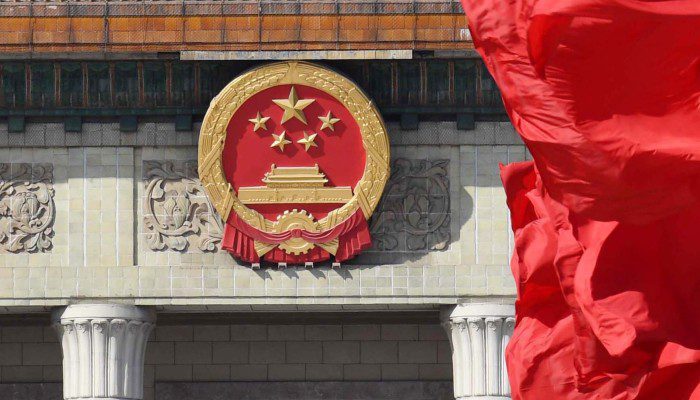On December 9, 2020, China’s State Taxation Administration announced the tax declaration period for the monthly filing of tax returns for the year 2021. Due to scheduled public holidays, the tax bureau has extended the dates for tax filing in selected months. Individuals and business enterprises are advised to prepare for filing their monthly tax returns.
Have a look at our previous article on Public Holidays in China for the Year 2021
Filing monthly returns is one of the most important tax compliance requirements in China including annual closing or year-end accounting.
Why is the monthly filing of tax returns necessary?
The monthly filing of tax returns or tax declaration is a standard rule for withholding and reporting of income taxes. Employers withhold their employees’ monthly income tax on their behalf. Thus, they also need to declare their withheld income taxes to tax authorities. Typically, business enterprises or individuals should conduct tax filing every 15th of the next month. For example, the January tax payment deadline will be on February 15th. However, STA usually extends the deadlines due to the public holiday arrangement every year.
An individual who is earning RMB 5,000 per month does not need to file tax returns as they are normally exempted from paying income tax.
Who needs to declare tax returns monthly?
Employers who are withholding employees’ salaries of more than RMB 5,00 per month should file tax returns before the scheduled deadline. It is crucial, especially for foreign-invested enterprises to meet filing requirements to avoid late payment fees such as a 0.05 percent daily rate. On the other hand, employees with no withholding agents must file their income tax returns on a self-declaration basis.
Read more about self-declaration of income tax: Income Tax Self-declaration for Individual Taxpayers in China
Individual income tax, housing fund, and social securities are filed monthly while corporate income tax and value-added tax plus surtax are filed either monthly or quarterly. Foreign companies who are unfamiliar with these procedures may seek advice from tax advisory firms to ensure accurate reporting. Contact us to assist you with your tax filing.
Deadlines and extended dates for the tax returns filing
The specific tax declaration deadlines for taxes that are supposed to be declared within 15 days after the end of a month or a quarter are clarified as follows:
- The deadlines for tax declaration in March, July, September, November, and December are on the 15th of the respective month.
- January: There are three-day holidays from January 1st to 3rd, so the deadline for tax declaration is extended to January 20th.
- February: There are seven-day holidays from February 11th to 17th, so the deadline for tax declaration is extended to February 23rd.
- April: There are three-day holidays from April 3rd to 5th, so the deadline for tax declaration is extended to April 20th.
- May: There are five-day holidays from May 1st to 5th, so the deadline for tax declaration is extended to May 21st.
- June: There are three-day holidays from June 12th to 14th, so the deadline for tax declaration in June is extended to June 18th.
- August: August 15th falls on a Sunday, therefore the deadline for tax declaration will be extended to August 16th.
- October: There are seven-day holidays from October 1st to 7th, so the deadline for tax declaration in October is extended to October 26th.

Tax declaration dates: January 20; February 23; March 15; April 20; May 21; June 18; July 15: August 16; September 15; October 26; November 15; December 15
It is important to highlight that, local taxation bureaus, with the approval of the State Administration of Taxation, might adjust the deadlines under special circumstances. Please comply in a timely manner with the tax filing.
New policy on withholding and prepayment of income taxes
On December 4, 2020, STA also announced a new policy for withholding and prepayment of taxes for some qualified taxpayers. According to Announcement No. 19 [2020], a resident taxpayer whose annual income does not exceed RMB 60,000 in the previous year will not have to pay monthly tax in the next year until their accumulative income exceeds RMB 60,000.
For instance, if Mr. Chen’s annual income for the year 2020 (from January to December) is RMB 54,000, he does not need to pay monthly tax in the next coming months of the year until his accumulative income reaches over RMB 60,000. Considering that his monthly salary for the next year from January is RMB 10,000, he will not pay monthly tax from January to June 2021 since his accumulative income will not exceed RMB 60,000. However, from the month of July, he will have to pay monthly income tax when his accumulative income exceeds RMB 60,000.
On the other hand, qualified taxpayers must meet the following conditions to be able to enjoy the optimized taxes:
- Worked for the same employer from the previous year (January to December 2020);
- Previous annual income does not exceed RMB 60,000 (including annual bonus and other incomes, without any expense deductions or tax-free income);
- Working for the same employer from January of the current year (2021).
The new policy also applies to insurance salespersons or securities brokers who pay IIT with the cumulative withholding method. Furthermore, there are also certain conditions that they have to meet in order to qualify. Consult with us to learn more about the practical application of this new policy.
Conclusion
In China, declared taxes may be different per month due to tax variation in China’s monthly income tax rates. Moreover, late monthly filing of tax returns can affect a company’s tax credit rating, hence, impacting further business aspects such as when applying for loans.
Rules on tax declarations differ from district to district in Chinese local cities. Thus, you may consult with local tax advisors for relevant information on the specific filing requirements and penalty rates.
Contact us
S.J. Grand’s tax and accountancy services provide advisory on China’s tax and business regulatory environment as well as assist in the tax filing for foreign individual workers and enterprises in China. Contact us to get you started.
If you are interested to learn about our latest Cloud-based company solution, contact us, or go to our Kwikdroid page to check the prices and packages we offer, no matter the size or type of company.







